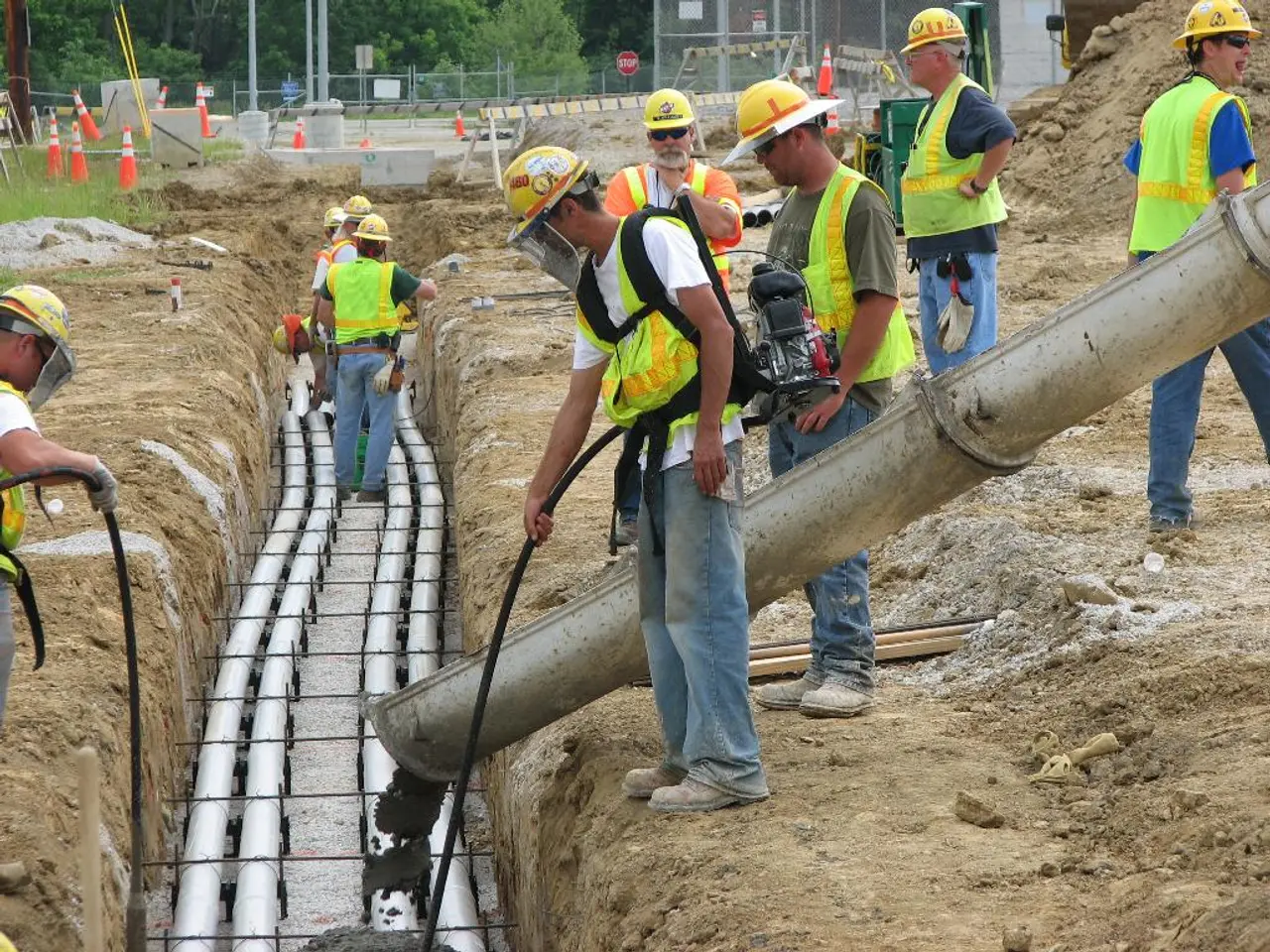Streamlining Approval Processes for Energy Projects in Canada Led by Executive Dawn Farrell
Streamlined Approval Process for Major Projects in Canada
The Canadian government has established a dedicated Major Projects Office (MPO) to oversee critical infrastructure projects such as mines and pipelines. The creation of the MPO responds to longstanding frustrations with Canada's complex and time-consuming approval processes for major resource and infrastructure projects.
Dawn Farrell, a seasoned energy executive, has been appointed to head the new office. Farrell served as CEO of Trans Mountain Pipeline and TransAlta, where she oversaw significant transition and infrastructure projects. Her extensive experience in the energy sector is expected to be invaluable in streamlining the approval process.
The new system will maintain rigorous environmental assessment standards for all projects. Climate considerations will be integrated into the approval processes, and Indigenous knowledge will be incorporated in environmental reviews. Ongoing monitoring and compliance mechanisms will be in place throughout project lifecycles.
Conditions-based approvals with enforceable environmental commitments will be used. Transparent public consultation requirements will remain in place, ensuring that all stakeholders have a voice in the decision-making process. The MPO will work to integrate Indigenous perspectives early in the review process and explore economic partnership opportunities with affected communities.
The MPO's strategic location in Calgary connects it directly with Canada's energy sector. The new framework includes a "one project, one review" approach, coordinated review processes, clear timelines, centralized decision-making authority, integrated environmental assessments, proactive stakeholder engagement, and dedicated case managers for major projects.
Canada is implementing reforms to streamline natural resource project approvals, aiming to reduce timelines while maintaining environmental standards. The MPO aims to reduce maximum approval timelines from over 10 years to just 2 years for projects deemed to be in the national interest.
The specific criteria for defining "national interest" projects have not yet been fully detailed, but may include strategic importance, contribution to energy transition and climate goals, critical minerals supply chain significance, export potential, regional economic development impacts, Indigenous economic partnerships, infrastructure addressing supply chain bottlenecks, and projects with significant job creation potential.
The reforms could fundamentally alter the investment landscape for major projects in Canada's resource sector, particularly in energy and mining. The streamlined approval process is expected to generate significant economic benefits, including increased investment, enhanced GDP growth, job creation, strengthened global competitiveness, reduced opportunity costs, and improved investor confidence in Canadian resource markets.
However, the project approval system has been criticized for excessive bureaucratic layers, overlapping federal and provincial jurisdictions, inconsistent timelines, lost economic opportunities, and reduced international competitiveness. The MPO is a response to these criticisms, and the government hopes that the new system will address these issues and make Canada a more attractive destination for major resource and infrastructure projects.








